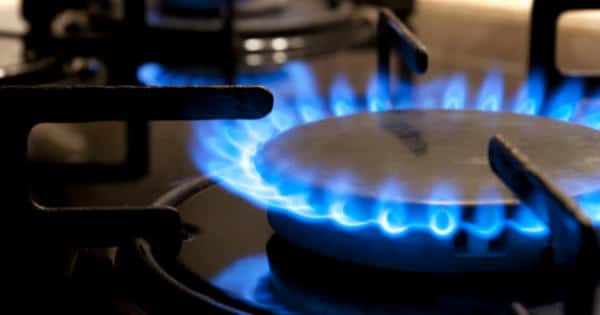Harvard University researchers discovered that a shift away from coal over the last decade saved thousands of lives and significantly reduced the health effects of breathing particulate matter, also known as soot. However, the figures for gas, another fossil fuel that posed the greatest health risks in 2017, fell only slightly.
According to the study, the state’s reliance on gas to heat homes and businesses was responsible for roughly half of the deaths from soot exposure that year. Only when coal is used to generate electricity does it become more lethal. The troubling findings raise concerns about whether Gov. J.B. Pritzker’s proposed transition to a zero-carbon economy would move quickly enough to phase out gas use—not only to mitigate the effects of climate change, but also to ensure Illinoisans breathe clean air.
Chicago appears to be doomed to a future reliant on fossil fuels. Peoples Gas will charge its customers $7.7 billion over the next two decades to replace aging distribution lines throughout the city, despite the fact that an accelerating shift to renewable energy may render the project obsolete before it is completed.
Pollution from natural gas is now responsible for more deaths and greater health costs than coal in Illinois, according to a new study highlighting another hazard of burning fossil fuels that are scrambling the planet’s climate.
“What the Harvard researchers discovered shows that we need to stop burning things,” said Brady Anne Seals, manager of the Rocky Mountain Institute’s carbon-free buildings program, a nonprofit research organization that helped fund the pollution study. “We no longer have the luxury of time to achieve our climate goals. Then there are the health consequences that people are experiencing right now.”
Soot is regarded as one of the most dangerous forms of air pollution, with tiny particles invisible to the naked eye that can lodge deep in the lungs and enter the bloodstream. Researchers discovered that even small amounts of breathing can inflame the lungs and trigger asthma attacks. Numerous studies have linked soot exposure to heart attacks and premature death.
The Harvard researchers used data from federal emissions inventories to feed into computer models that estimate soot-related deaths and costs in each state for their new study.

Coal emissions caused the most deaths and incurred the greatest share of national healthcare costs in 2008. However, by 2017, scientists discovered that coal, gas, and the combustion of wood and other plant material all contributed equally to the burden.
According to the study, published Wednesday in the journal Environmental Research Letters, Illinois is one of 19 states where gas emissions killed more people than coal that year. According to the analysis, soot pollution from burning gas caused up to 2,100 deaths and up to $24 million in hidden health costs for Illinoisans in 2017.
The Harvard team was most surprised by a nationwide increase in deaths and healthcare costs caused by soot pollution emitted by industrial boilers burning plant material known collectively as biomass.
“Swapping one combustion fuel for another is not a path to a healthy energy system,” said lead author Jonathan Buonocore, an environmental health researcher at Harvard T.H. Chan School of Public Health.
Climate activists have already targeted natural gas, persuading Seattle and more than 40 cities in California to limit its use in new buildings. The Harvard study is the first to show that deaths and health-care costs from gas emissions are equal to or exceed those from coal, providing new evidence to the burgeoning anti-gas movement to help persuade policymakers and the public.
Officials from the industry are retaliating. They have successfully lobbied several Republican-led states to preemptively block municipal gas bans, and they have commissioned their own research claiming that heating homes and businesses with electricity would increase energy costs.
“Policies that would force people to replace their natural gas appliances with electric ones could be burdensome to consumers and the economy, have profound impacts and costs on the electric sector and be a very costly approach for a relatively small reduction in emissions,” said the American Gas Association in a statement.
Peoples Gas did not address the health implications of its product, but it did claim that its pipe replacement reduces climate pollution by preventing leaks. Its parent company, a Wisconsin-based WEC Energy Group, plans to invest $4 billion in clean energy projects by 2025, according to a statement from the gas supplier.
“We look forward to a bright and sustainable future,” the statement said. “We simply need to ensure that in that future, and every step that leads to it, Chicagoans and the businesses where they work have safe, dependable, and affordable heat.”
President Joe Biden wants carbon-free electricity by 2035 and net-zero emissions across the economy by 2050. Last week, Pritzker unveiled legislation that would phase out the state’s remaining coal-fired power plants by 2030 and gas-fired power plants by 2045, but the governor’s proposal does not directly address the impact of gas combustion in homes and businesses.
According to Howard Learner, executive director of the non-profit Environmental Law and Policy Center, it would be impossible to abandon gas quickly because more than 90% of Chicago homes are connected to the Peoples Gas distribution network. However, he believes that federal and state leaders could significantly reduce demand by mandating more efficient furnaces and water heaters, as well as providing incentives to install solar panels on commercial and residential buildings.
“Electrification will only result in cleaner air if our state is powered by carbon-free electricity,” said Learner. “If we can make our homes and businesses more energy-efficient, we can save money, reduce pollution, and keep money in the local economy.”















